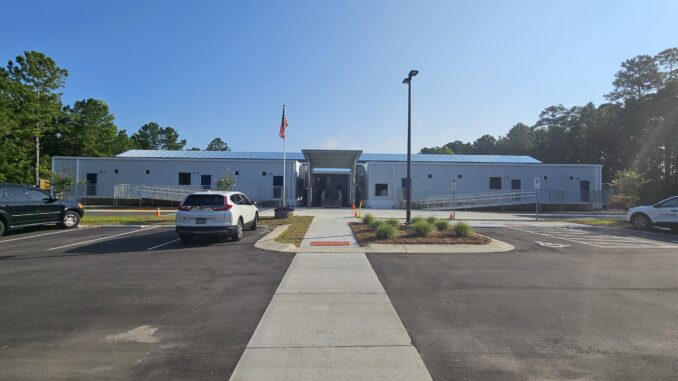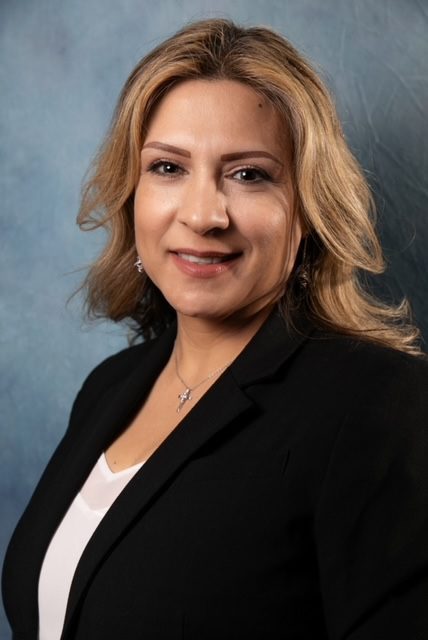
RALEIGH — A 50-year-old Head Start program has had a multi-generational impact on migrant farmworker families and their children.
Maria Garza, the CEO of the East Coast Migrant Head Start Project (ECMHSP), shared with North State Journal the impact of what the organization does and how it has made a “big difference” in the lives of migrant farmworker families.
ECMHSP is a nonprofit established in 1974 through a grant from the U.S. Department of Health and Human Services. The organization has 43 campuses in ten states, including North Carolina, which provide “holistic, high-quality early childhood education services” for approximately 3,500 farmworker children “between 6 weeks to 6 years old.”
The organization does not receive state or local dollars but instead is funded mainly by the federal government. Federal grant funding in 2022-23 totaled nearly $80 million and in 2023-24 the group received grants totaling $71 million.
ECMHSP serves multiple counties with offices located in Angier, Bailey, Booneville, Newton Grove, Fountain, Ivanhoe and Rocky Point.
The organization will be celebrating its 50th anniversary this year and Garza said various events are being planned to celebrate.
“We are probably one of the very few Head Start agency providers or nonprofits that are exclusively Head Start providers,” Garza said. She added they have not deviated from their original mission since the organization was founded.

“We don’t provide housing, we don’t provide health care,” said Garza. “We do cover and provide an array of comprehensive services – holistic services and approaches to the children that we serve – and health is one of the requirements.”
“There have been nothing but tremendous changes since we started in the agricultural industry,” Garza said when asked about challenges the organization has faced. “When we started, I would say that 80% of the children and families that we were serving or of African-American descent. And they migrated between the states of Virginia, the Carolinas, and Florida, primarily with a few stops in Pennsylvania.”
Garza said that over time, ECMHSP was providing services to the Latino community and to Mexican children whose parents were, for the most part, legally in the country with “very, very few exceptions.”
“The biggest challenge I would think moving forward is a perception that always exists – that the immigrants…that the migrant farm workers in this country are all undocumented,” Garza said.
The organization cited key trends in the assistance they provide to children of migrant farm workers, including most of the families currently served are Hispanic/Latino (69%); a decrease from the previous year of 92%.
Additionally, ECMHSP says there is a “growing population of Haitian families and those families make up 10% of the served population across campuses in North Carolina, Florida, and Indiana.”
White families are 11% of the population served, per ECMHSP, which said these demographic shifts “indicate the importance of culturally sensitive and language-specific approaches in your program delivery.”
In terms of languages spoken by those the group serves, Spanish is spoken by most families (41%), followed by English (9%) and Haitian Creole (7%).
“They were born here in this country,” Garza said of some of the children they serve. “And I know that if we do well by them – meaning we educate them – they’re going to be better citizens; big engines of contributors to the economy of this country.”
Garza added that if we don’t invest in these children now then they will become dependent on government systems for support.
“I believe in education. That’s why I’m here,” said Garza. “I believe in what we do; in the presence of where we are in rural areas.”
In addition to education, Garza and the organization believe childcare in North Carolina is crucial for economic stability and the well-being of not just migrant agricultural families but more broadly across the state for lower-income households. The organization cited over 600,000 children under five and 400,000 working parents in the state who need accessible and affordable childcare to ensure workforce participation and further educational attainment.
ECMHSP says its aim is to provide solutions for a brighter future by supporting childcare initiatives.
In terms of the organization’s impact on individuals who have passed through its programs, Garza put North State Journal in touch with a woman she characterized as one of many of her organization’s success stories.

Angie Thacker is the CEO of Pinam, a commercial and residential construction company based in Durham.
Her company is growing quickly and has been “pushed to a new level” with government contract work but said she is “very grateful for my past childhood that has really made me who I am today.”
Thacker’s family has seen a multi-generational impact from ECMHSP’s programs, from her mother, to herself, and also Thacker’s daughter who now works in the medical field.
When it came to her own daughter’s experience with ECMHSP, Thacker said it helped “100% because she knew they were a “very trusted source.”
Thacker recounted her own journey and experience as a migrant farm worker and how ECMSHP had been a factor in the lives of her family.
She was born in a Mexican town called Rio Rico and said her family crossed the border when she was three years old, settling in a small town called Progresso in Texas. She grew up in that town noting she came from a family “with very, very limited resources.”
“You have your siblings, and you go to school, you think that school is the only escape you have from home because I learned at a very young age that I didn’t want to be there,” said Thacker. “I didn’t want to grow old there. I didn’t want to die in that environment. I knew that I had to find a way to escape.”
By age 10, her mother and her children all had resident alien status. Thacker would later become a U.S. citizen at age 35.
Things changed when her parents split up and her mother was now single with four young children. She described having to become a “little mom,” by helping to take care of her siblings.
Following her parents’ separation, her mother was offered agricultural work in Charleston, South Carolina. The opportunity came with challenges but also an advantage: the Head Start program.
The youngest of Thacker’s siblings attended the Migrant Head Start program and she said they were fortunate to have that program because her mother would not have been able to afford childcare otherwise.
“Having that resource of this migrant program there, it helped tremendously because it really made an impact on whether we were going to continue to go back or we were going to just call it off,” Thacker said. “The program was also very welcoming to the migrant people. I don’t know if they knew the impact that they were making on us. I don’t know that, but I do know that they just made a huge world of a difference because they were a trusted resource place.”
At age 16, Thacker married in an attempt to escape the migrant lifestyle. She had her daughter through that marriage.
“I still ended up back in the migrant work because the person I married, he was part of that world,” said Thacker.
Thacker’s oldest daughter also benefited from the Migrant Head Start Program while she and her then-husband worked.
“I would send her there because I already knew that that was a good place,” said Thacker.
Thacker decided to stay in Charleston after divorcing, which is where she was first introduced to the construction industry while working a cleaning job in the area. She said she realized that construction was a “very well-paid industry,” and, back then, there wasn’t a lot of female competition.
While cleaning a job site, Thacker said she had spotted and was looking at floor plans left out on a table and that’s when her first opportunity to work in that field presented itself.
“I remember there was this gentleman and he came to me and he said, “Do you know how to read a floor plan? And I said ‘No, Sir,’” Thacker recalled. “I didn’t even know what a floor plan was, so I said no, I don’t. He said, “Well, would you like to learn?” And I said, “Well, of course.”
The man was an electrician supervisor or project manager and he showed Thacker how the floor plans worked when it came to the electrical side of construction. The same man also offered her a crew leader position, citing her bilingual skills as an asset in translating directions to workers.
While glad to have moved on from migrant farm work, Thacker said she thinks all Americans would benefit from a similar experience.
“All Americans should have that because it’s an eye-opening experience. It shows you how to appreciate even the smallest of things,” Thacker said.



